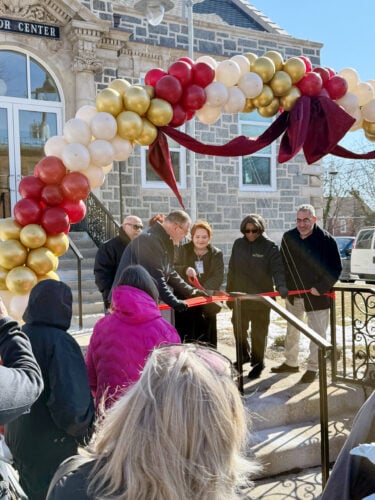Vineland, Millville, Bridgeton Win Municipal Aid Grants

 Last week, Gov. Phil Murphy and New Jersey Department of Transportation Commissioner Diane Gutierrez-Scaccetti announced $161.25 million in Fiscal Year 2022 Municipal Aid grants, with 541 cities and towns across the state receiving funds to advance road, bridge, safety, and quality-of-life improvements, demonstrating the Murphy Administration’s Commitment to Communities.
Last week, Gov. Phil Murphy and New Jersey Department of Transportation Commissioner Diane Gutierrez-Scaccetti announced $161.25 million in Fiscal Year 2022 Municipal Aid grants, with 541 cities and towns across the state receiving funds to advance road, bridge, safety, and quality-of-life improvements, demonstrating the Murphy Administration’s Commitment to Communities.
The competitive Municipal Aid grant program attracted 625 applications from 547 different municipalities with a total of $363 million requested. Project applications were evaluated and rated on their merits by NJDOT staff and reviewed by an independent panel of New Jersey municipal engineers. This process resulted in 546 awards to 541 municipalities, totaling $161.25 million.
The 2016 Transportation Trust Fund renewal has made it possible to continue to award $161.25 million annually—more than double the $78.75 million that was available before the TTF renewal. In addition, the extra funds have allowed the Department to increase the number of municipalities receiving grants from about 370 a year prior to the TTF renewal to 541 municipalities this year.
Under the Municipal Aid grant program, each county is apportioned a share of the total funding based on population and the number of local centerline miles. Municipalities compete for portions of their county’s share. NJDOT provides 75 percent of the grant amount when a town awards a contract and the remaining 25 percent upon completion of the project. Of the $161.25 million, $10 million is allotted for municipalities qualifying for Urban Aid as defined under state law, with the amounts determined by the Department of Community Affairs.
Applications for Municipal Aid grants were submitted to NJDOT by July 1, 2021 and have been judiciously reviewed. There are seven project categories within the Municipal Aid grant program eligible for funding: Roadway Preservation, Roadway Safety, Quality of Life, Mobility, Bikeway, Pedestrian Safety, and Bridge Preservation. Past performance in connection with timely award of projects and construction close-out factors were part of the evaluation of the proposals.
When evaluating applications, NJDOT also verifies if the municipality has adopted a Complete Streets policy. A Complete Streets policy establishes guidelines that require consideration be given to pedestrians and bicyclists when local transportation projects are being planned, designed, and built.









